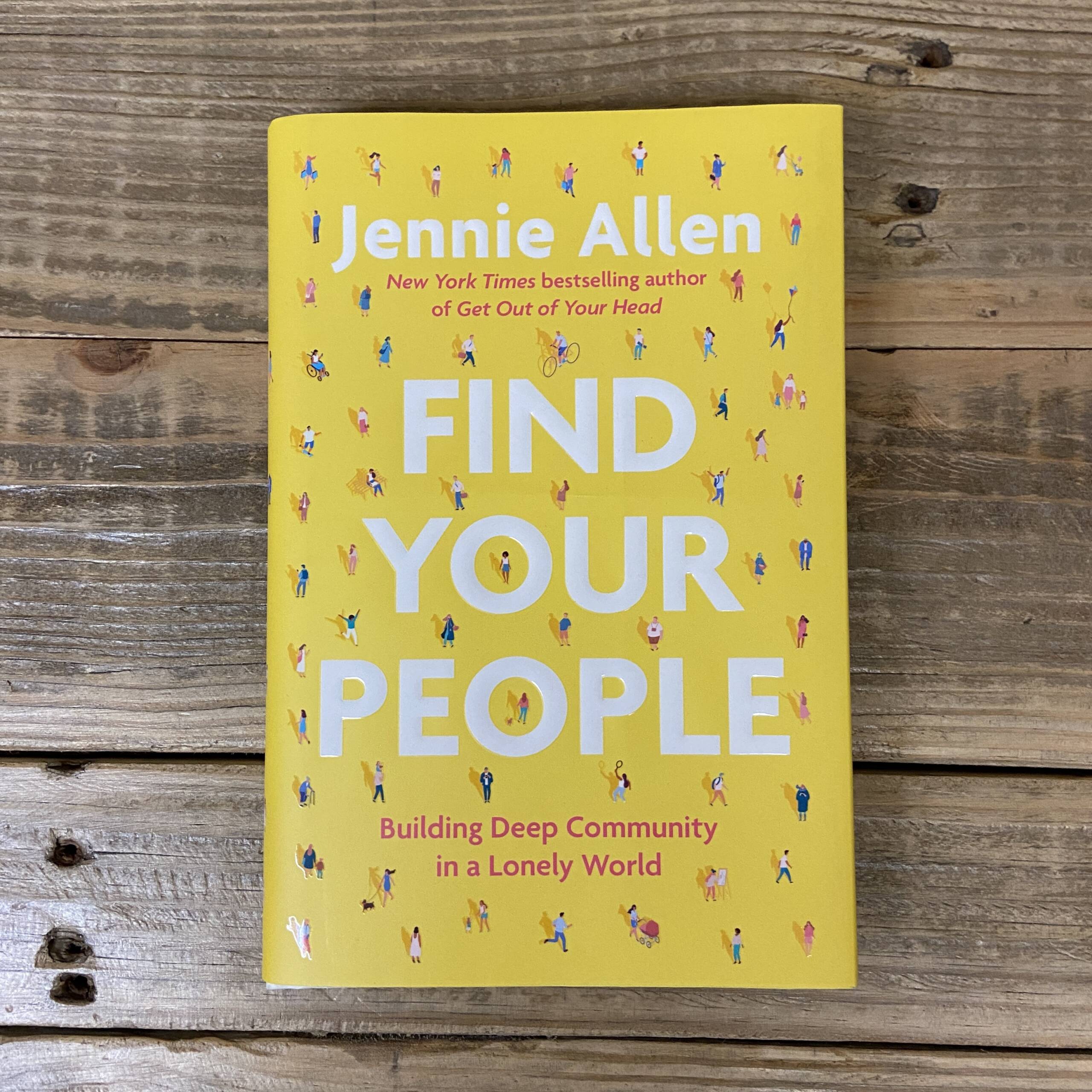
Jennie Allen is a writer that I’ve really appreciated for a few years now. Her previous book Get Out of Your Head was helpful and I blogged about it here. I am grateful that her writing points to Scripture as the answer for all of the questions, conflicts, and struggles that will come with this life. Find Your People is more of the same authentic look at what it means to live in pursuit of true gospel community. I highlighted several things while reading and have posted those notes below…
- I want us to trade lonely and isolated lives that experience brief bursts of connectedness for intimately connected lives that know only brief intervals of feeling alone. Introduction
- We’ve replaced intrusive, real conversations with small talk, and we’ve substituted soul-baring, deep, connected living with texts and a night out together every once in a while, because the superficial stuff seems more manageable and less risky. But let’s face it: whether we live lonely or deeply connected, life is messy. The magic of the best of relationships is the mess, the sitting-together-on-the-floors-of-bathrooms, hugging-and-sobbing mess. p. 10
- We live alone, we eat alone, we run our errands alone, and we suffer alone. p. 16
- Outside of Jesus, relationships are the greatest gifts we have on earth and simultaneously the most difficult part of being alive. p. 19
- Author and pastor Tim Keller said, The life of the Trinity is characterized not by self-centeredness but by mutually self-giving love. When we delight and serve someone else, we enter into a dynamic orbit around him or her, we center on the interests and desires of the other. That creates a dance, particularly if there are three persons, each of whom moves around the other two.[3] p. 24
- We are called to be a community of people, on a mission, delighting in God, delighting in each other, redeemed and reconciling the world, bringing them and inviting them into this family. This is the ultimate purpose of community. p. 28
- When I slow down and really consider what life looked like back in the Garden of Eden, I see five realities: Proximity. They enjoyed physical closeness to each other and God. Transparency. They were naked and unashamed, fully known and fully loved. Accountability. They lived under submission to God and to each other. Shared Purpose. They were given a clear calling to care for creation. Consistency. They couldn’t quit each other. They needed each other and shared everything together. p. 43
- We can’t have what we aren’t willing to become. p. 57
- Remember to look for your people in unexpected places. Life stage doesn’t matter. Age doesn’t matter. Find the people who are following after Jesus, and then go with them. p. 89
- vulnerability is the soil for intimacy, and what waters intimacy is tears. p. 96
- Hurting people hurt others. But equally true is that only forgiven people can truly forgive. p. 102
- “To love at all is to be vulnerable,” C. S. Lewis famously wrote. Love anything and your heart will be wrung and possibly broken. If you want to make sure of keeping it intact you must give it to no one, not even an animal. Wrap it carefully round with hobbies and little luxuries; avoid all entanglements. Lock it up safe in the casket or coffin of your selfishness. But in that casket, safe, dark, motionless, airless, it will change. It will not be broken; it will become unbreakable, impenetrable, irredeemable…. To love…is to be vulnerable.[5] p. 107
- Complaining seeks relief. Vulnerability seeks transformation and connection. p. 113
- If accountability is done right and with the right people, we will love Jesus more and our lives will show that love to be real. p. 133
- Conflict is safe when you know you won’t quit each other. p. 170
- “Those who love their dream of a Christian community more than the Christian community itself become destroyers of that Christian community,” Dietrich Bonhoeffer wrote.[8]-p. 198
Categories:

